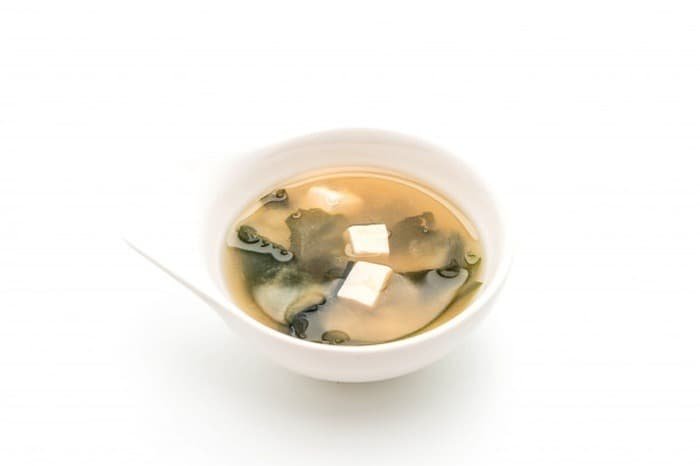All aboutFermented foodsand their benefits for the body
Are you curious to learn about fermented foods and understand how they can help your health? In this section of health and wellness,SelMagzwe will introduce you to the basics of fermented foods and their properties, so you can decide whether to include them in your diet or not.
What is fermentation?
When we talk about fermented foods, we mean the fermentation of lactose, which means thatstarchand sugar in vegetables and fruits are converted into lactic acid.
Fermentation is a process that uses microorganisms like bacteria or yeast to convert carbohydrates into alcohol or organic acids in anaerobic conditions. Beneficial microorganisms or bacteria are essential for life and have significant impacts on human and animal health.
Lactic acid is a natural preservative that prevents harmful bacteria from functioning. Lactose fermentation reduces harmful bacteria in the body and enhances the performance of good bacteria.
The presence of an oxygen-free environment plays a critical role in the fermentation process because oxygen can inhibit fermentation.

Best fermented foods
Fermented foods contain beneficial bacteria that act as boosters for good bacteria in the digestive system.
Kefir
Kefir is one of the best fermented foods, made by combining lactic acid and alcoholic fermentation of lactose in milk.
Kimchi
Kimchi is a popular low-fat fermented food in Korea, rich in vitamins, minerals, fiber, and phytochemicals, and is beneficial for weight control.

Kombucha
Kombucha is a sweet beverage brewed with a culture of bacteria and yeast.
Natto
Natto is a traditional Japanese food made fromfermented soybeanswith Bacillus subtilis. Natto is a natural food, and the enzymes produced during fermentation create natto kinase.
Miso
Miso is a popular semi-solid food in Japan, used to preparesoupand as a seasoning, having a sweet and salty flavor.

Sauerkraut
Sauerkraut is made from fermented cabbage. Lactic acid-producing bacteria ferment the cabbage,caulifloweror broccoli into sauerkraut.
Tempeh
Tempeh is a popular plant-based food in the US and an Indonesian food; consuming it daily for two months can be beneficial for patients with active pulmonary tuberculosis and can lead toweight gainand changes in physical performance.
Yogurt
Probiotic yogurt is rich in calcium, zinc, B vitamins, and protein, and none of the fermented foods are more famous thanyogurt.There’s none more famous.

Benefits of fermented foods for the body
Fermented foods offer many benefits, which we will discuss in the following section of SelMagz.
1. Aiding digestive improvement
Fermented and raw foods are rich in enzymes, and your body needs these enzymes to digest and utilize food effectively. Sometimes, those who cannot drink milk will choose yogurt instead because the lactose in milk is broken down, fermented, and turned into yogurt.
2. Maintaining proper bacteria balance in the gut
Remember that about 80% of the immune system is concentrated in the gut. Eating fermented foods adds good bacteria to the gut, helping maintain the balance of good bacteria, improving resistance to lactose, gluten, and issues like constipation, irritable bowel syndrome, yeast infections,allergiesand asthma due to a lack of good bacteria.

3. Preventing Helicobacter pylori
Helicobacter pylori infection can be dangerous for many gastrointestinal diseases. Some fermented foods are helpful in suppressing H. pylori infection. People who consume fermented foods more than once a week are less likely to develop gastrointestinal diseases.
4. Preventing cancer
Abnormal genetic activity or mutations are factors leading to cancer, resulting in uncontrolled growth and cell division. Probiotics and fermented foods detoxify the body, boost immunity, alter the gut environment, increase metabolic product production, and strengthen compounds that prevent tumor cell growth, thus reducing the risk of cancer.

5. Increasing vitamin content in the body
Fermented foods and dairy products consistently raise levels of folic acid, pyridoxine, B vitamins, riboflavin, andbiotin.6. Helping the body absorb nutrients
When digestion improves, absorption improves too. Fermentation aids in the creation of new nutrients and enhances the absorption of several nutrients.
7. Boosting the immune system
Consuming fermented foods produces beneficial enzymes, B vitamins, omega-3 fatty acids,
and various probiotics to protect food and nutrients. Fermented foods provide a complete set of beneficial bacteria that support the gut and fend off diseases.8. Extending food shelf lifeThe fermentation process extends the shelf life of foods; for example, milk goes bad in the freezer, but the quality of yogurt remains good for a longer time due to fermentation.

9. Improving arthritis symptomsSymptoms of
rheumatoid arthritis
may improve with the consumption of fermented foods. Research has shown that individuals with arthritis experienced significant improvements in their health scores after three months of probiotic treatment.
10. Treating inflammatory bowel diseaseFermented milk containing probiotics can have a direct impact on the gut and manage inflammatory bowel disorders. Probiotics play a role in reducing symptoms of inflammatory bowel diseases, including Crohn’s disease.11. Lower cost

Fermented foods are often inexpensive. Consuming these affordable dishes is beneficial for the body and digestive system, so use these inexpensive products to improve digestive issues and strengthen the immune system.
Fermented foods
Fermented foods
Kimchi







